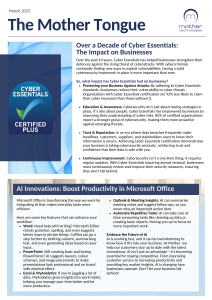
Wondering if cloud computing could be right for your business? Cloud computing is a buzzword that has dominated in the IT industry for the last few years as more IT, network and software providers continue to get in on the action and more businesses migrate. Cisco’s Global Cloud Index estimates that by 2019, more than four-fifths (86 percent) of workloads will be processed by cloud data centres.
Cloud computing has taken off predominantly because of the cost savings and increased simplicity it offers businesses. Companies no longer need to own and maintain their own server hardware or software as they did previously. This has been facilitated by improved connectivity services such as fibre optic internet becoming more readily available and commercially viable – as high bandwidth and reliable connectivity are all important for cloud computing.
The increasing rate of business cloud adoption is gradually changing the face of the IT industry. It signifies a growing trend for IT delivery and management to be centralised and outsourced, particularly back-end operations such as server and virtual machine management, while in-house roles become more user and function orientated.
Cloud computing can be anything from simple provision of Infrastructure as a Service (IaaS), such as an unmanaged service allowing access to storage space in a virtual server, to managed services such as Software as a Service (SaaS) or Platform as a Service (PaaS). SaaS is where a software application is accessed over the internet and rental is paid on a user basis, and PaaS is where infrastructure and applications are provided as a development or collaboration environment.
Any cloud service could be delivered as a public, private or hybrid solution. The difference is who has access to the physical infrastructure of your cloud solution.
Public cloud services are delivered via shared infrastructure, including public internet connections and virtualised server environments which can house data from more than one company.
Private cloud could be delivered by either in-house or outsourced mechanisms, but it means access through a private internet connection and dedicated server usage, whereby only one company uses the hardware.
Hybrid cloud is when a combination of both private and public cloud are used, usually because different applications have different security requirements or are less crucial for business operation. Public cloud offers a cheaper solution when data security is not as crucial.
CAPEX and OPEX cost reduction
Cost savings can include capital expenditure for servers and related hardware, virtualisation software, reduced electricity bills, maintenance and replacement costs, security, resiliency and back up provisions as well as IT support man-hours.
Flexibility and scalability
Without being tied to physical server capacity and being able to choose from a range of delivery mechanisms or applications and features on a monthly basis, businesses can very easily scale up or down (depending on contractual terms).
Disaster recovery and resiliency
24 hour monitoring and data backups are usually provided as part of a data centre service, plus large purpose-built facilities that offer hosting as a service are designed to be resilient, with features such as emergency back-up power generators and gas fire suppression systems.
Security
Public clouds do provide security measures however private clouds are more restricted and typically provide higher levels of data security.
Location independence
Given that cloud services are accessed over the internet, users and staff can access applications from anywhere as long as they have internet connection.
Software updates
Managing software licensing and updates is included with SaaS, so it provides greater simplicity and no internal management other than organising for user numbers, and everyone is always working from the same software version.
Focus on core business operations
Removing responsibility for the technical delivery of your data infrastructure means your business can focus on its core operations rather than becoming distracted by IT management and considerations, or spending more money than is necessary.
Data security
If you plan on storing sensitive data on cloud infrastructure, public cloud may not be suitable for your needs and you should investigate private cloud options instead.
Clearly defined contractual terms
make sure you know exactly what comes with your service and have the built in flexibility, control and service level guarantees that you’d like.
Downtime
Although very unlikely, if your internet connection went down or a temporary failure occurred, could your business cope with loss of access for potentially up to a day or two? Which applications are less crucial?
Despite the potential downsides of a cloud computing, these are unlikely to cause problems and can be managed if you enter into any agreement with your eyes open having done your research, as well as choosing a provider you trust who has a good track record. The upsides of cloud computing are such that its popularity only continues to increase, with most cloud services usually providing SME businesses with more data security and uptime than is achieved in-house.
If you’d like more information about any of the cloud computing services that Mother Technologies offer, please get in touch.

Read the newest edition of The Mother Tongue, packed with fresh tech insights and company updates.
